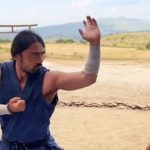Meet The Man Who’s Overseeing PlayStation’s Evolution
The CEO of Sony Computer Entertainment America hasn’t been on the job long, but is integral to the reimagining the PlayStation platform.
The L.A. Memorial Sports Arena is overflowing with thousands of videogame players and industry professionals, and they all just had a collective freakout. At the Sony PlayStation press conference, a teaser video was played and it gradually dawned on the room what they were seeing: a beloved classic roleplaying game from the early days of PlayStation, Final Fantasy 7, would be remade almost 20 years later. It would be one of the most memorable moments during that week of announcements at the E3 video game convention last month.
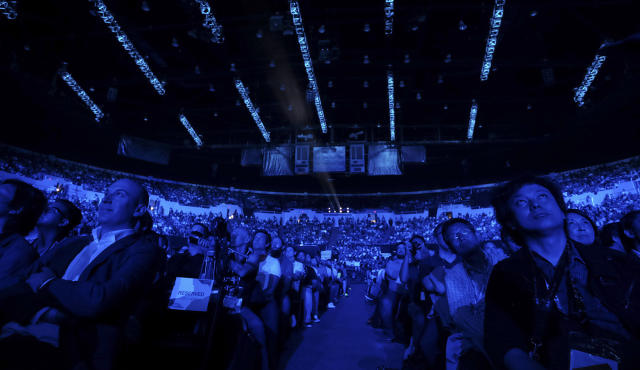
Shawn Layden is the CEO of Sony Computer Entertainment America, the U.S. division of Sony that released and manages the PlayStation video game console and its hundreds of games. Layden’s nearly 30-year career at Sony has spanned the company’s diverse operations starting when the company was primarily creating Walkmans and TVs to the creation of Sony Music, when Sony bought CBS Records and Layden worked to sign artists to the label. Then in 1995, when Sony formed Sony Computer Entertainment Japan and began creating the PlayStation, they took half the team from Sony’s hardware division and the other half from Sony Music, and Layden began working on PlayStation. He was named CEO to SCEA in April 2014.
Breaking Into Gaming
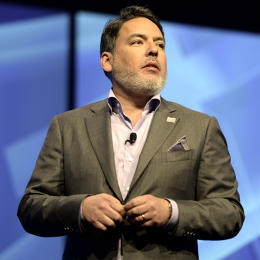
“The hardware guys knew we could make a great box, but what would we put on it? I think it is inspiring that Sony said, ‘We have all of these A&R guys in the music business. We will make them A&R guys for games. They can go out and do deals.’ They also brought to the company the sensibility that it’s not really about the platform,” says Layden. “People thought Sony was crazy to get into the gaming business. Nintendo and Sega owned it. But we bought the music guys in and that changed the whole dynamic. They bought something in from music: it’s all about the artist. No one knows who the record label is. No one knows who record executives are. It’s about the artists. And we needed to go to games with an artist focus, which means developers.”
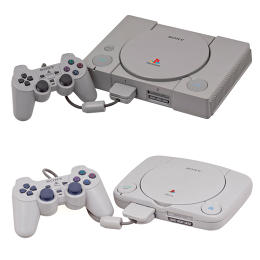
Since 1996, during those early years of PlayStation, Layden was in Tokyo trying to bring games made by developers in America and Europe to the Japanese market. It was an uphill battle, as in the days of PlayStation 1 the game industry was still dominated by Japanese developers. Things began to shift during the PlayStation 2 era, and by PlayStation 3, more video games were coming from the rest of the world, partially due to consoles catching up to the power of PCs, resulting in developers from PC games porting titles over to consoles.
He would return to Tokyo in 2007, becoming president of Sony Computer Entertainment Japan, and working with game developers in Japan once more. But it was more challenging, now that he was at the top. “To be a foreign president of a Japanese sales and marketing company, you can imagine the complexities around that,” he says.
Layden became a COO in 2010, in charge of making all of Sony’s web-based services work, globally, with its biggest online brand, PlayStation Network. It would all be tied together into one online network. And so these disparate businesses became more connected, with cameras integrating with PlayStation 3, downloadable games coming to mobile phones, Sony’s film and music services appearing everywhere.
Returning To PlayStation

When then SCEA CEO Jack Tretton departed the company after the successful launch of the PlayStation 4, Sony turned to the man managing the network to manage the entirety of PlayStation in the U.S.
“They handed the keys over to me and the first edict of that was, ‘Don’t scratch the car.’ It’s a tough job, when you’re already on an excited curve, you don’t want to be seen as a drag coefficient,” says Layden. “It was perhaps easier the fact that I was known. We all had worked together. Some of them for the entirety of my career. But to work together under the same roof for the first time, we were known quantities to each other.”
When a new CEO comes to an existing organization, and to one that is already successful, it’s not always clear what his mission is. Layden realized that and took a hands-off approach when he first joined SCEA.
He says: “I think that whenever a person takes a new job, unless the house is on fire and you really got to do something, my idea was watch, listen, learn. I gave myself six months to not do anything new in that period. There was stuff that I wanted to do immediately, but no. Let it sit, let it simmer. There were a number of things that I didn’t do that I ended up doing later, but I’m glad that I allowed myself the time to give it a think and go over it. There were a number of things that I ended up not doing at all, because, over time, different points of view or different information was realized. I’m glad I didn’t pull that trigger when I was so determined.”
The first thing Layden and Sony moved to do for PlayStation 4 was improve the online experience, especially when you download a game. “The transition from physical to digital is actually faster than any of our projections. We realized that there is a benefit to being able to download the game in your home, without getting in your car, driving to the store, bringing it back. Of course on PS3, it was faster to drive to the store than download it. So we fixed that problem. And now you can play while it’s downloading, which is one of the greatest innovations we brought to it,” he says.
“What we didn’t factor in was the second level of convenience we are learning from people: they don’t want to get off of the sofa and put the disc in the machine. They would rather just have it on the hard drive and just go from game to Netflix to PlayStation Vue, go back to another game. I totally get it. I only download stuff now. That transition is happening super quickly.”
Beyond Games
Over the years, the PlayStation brand has been gradually extended beyond games. PlayStation 2, released in 2000, let users also play DVDs. PlayStation 3, launched in 2006, not only let users play Blu-ray discs, but it had access to Netflix and other entertainment apps. Sony would also rent and sell digital films through their own service, Video Unlimited. But with PlayStation 4, launched in 2013, the company has taken it to new extremes.

Sony has started making original programming to stream on its PlayStation Network, starting with Powers, a series based on a comic book about cops that police superheroes. It seems the company wants to take on Netflix, Hulu, and Amazon’s original programming (which are all viewable on PS4 apps). And now they are taking on cable companies with PlayStation Vue. For a subscription fee, you can stream a selection of 80-plus cable channels, including subscribing to individual channels by themselves, starting with Machinima, Showtime, and Fox Soccer Channel.
Business Beyond Sony
In addition to Sony’s move into original programming and the PlayStation Vue television streaming service, PlayStation Now is a new platform that allows users to stream PlayStation games from a server instead of running it off a disc or a downloaded file. There is also the unveiling of the Project Morpheus virtual reality headset, which will be released next year. PlayStation has been busy making partnerships to have all of these become reality.
“Partnerships are extremely important, going back to the start of the PlayStation business. Whether it’s Square, whether it’s Capcom, could be EA, could be Activision, could be Ubisoft—we realize, we recognize, we embrace the fact that our business, our success, only progresses when we create success for others.
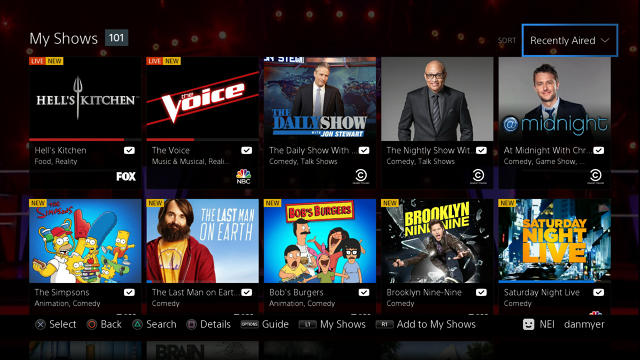
“So going from those kinds of relationships to Vue; it’s different partners. Yet, the goal is the same. ‘Do I have something of value to you? Do you have something of value to me? How do we make that happen?’ It took a long time to get Vue off the ground. Most of the time was not on creating the software. It was to have that conversation with those content providers. We have the same thing with music: working with Spotify, working with those record labels. Isn’t all business about some kind of partnership any way? Very few people can carry the whole nut themselves.”
And this is what Layden has done throughout his career: find partnerships with others to work with Sony. First it was music, then it was for PlayStation when it was in its formative years. At Sony Network Entertainment, he made partnerships with content providers for various services, and now back at PlayStation, all of these apply.
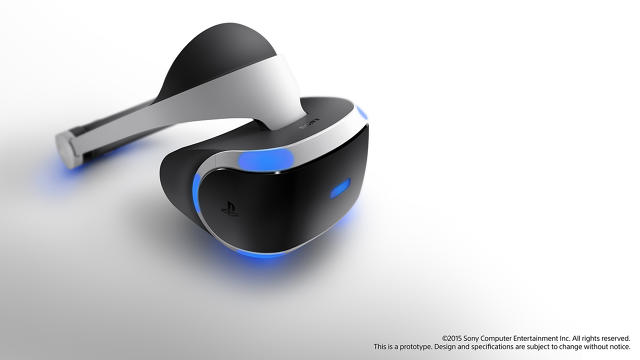
Like many, Layden believes virtual reality is a powerful new platform. And Sony is already working to make sure Morpheus applies to more than just games. “We got dozens of inquiries from non-game content providers. From museums on the one hand, to technology companies over here. All of the movie studios are talking to us about VR. And the sporting world. Can you imagine having a VR camera in Row 2 at a basketball court? It will be like sitting there and watching a basketball game. We’re talking to sports teams, we’re talking to event organizers, we’re talking to museums and other exhibitors, and high-end science and aerospace-related companies. It’s all over the place,” he says.
End Game
Layden realizes that however PlayStation expands, from VR to Video, at its center it must remain about the games.
“Games and developers are paramount. Then the wider concept of, ‘What is entertainment? What is it that people spend their time with?’ I love to hear that people just play games 24 hours a day, but we know it’s not true. There’s a thing called television. I understand people watch it. There’s movies; I understand people enjoy that. And music, of course,” says Layden. “We can provide for you all these different aspects of the entertainment you desire. That said, we pull ourselves back and say, ‘But it’s about the games.’ If we lose focus on that aspect of it, the rest of it is not going to matter.”
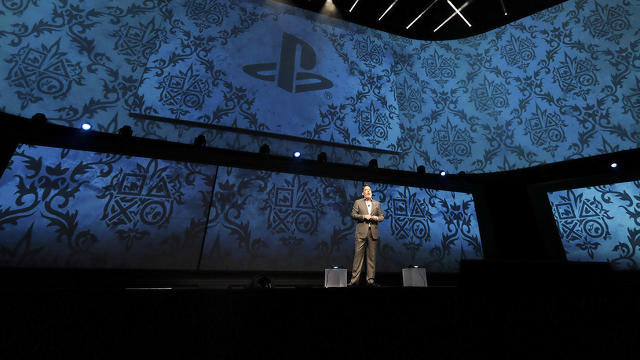
And so in Los Angeles for the biggest week in gaming, he takes the stage and introduces some new games and old favorites, or he is backstage watching his colleagues from Sony or other game companies he’s worked with for decades talk about upcoming titles. He is there as PlayStation builds its empire.
“This is the best job ever. Are you kidding me? My 20 years at PlayStation have been a ramp up to taking this job. And everything I’ve learned and everything I’ve experienced at my time there, I’m now allowed to let it all out,” says Layden.
Fast Company , Read Full Story
(160)



